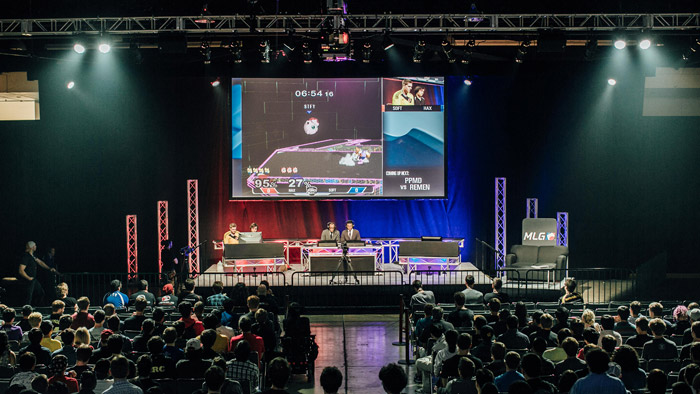Nintendo’s Super Smash Bros. has been a staple of many a childhood since the ’90s and beyond. Created by the legendary Masahiro Sakurai, “Smash” presents itself as a cuddly, kid-friendly fighting game wherein a greatest hits of Nintendo characters duke it out for supremacy by attempting to knock each other out of an arena. Past this veneer of simplicity, however, lies one of the most technical fighting games on the eSports scene.
The classic game franchise contains a number of game-engine glitches and design oversights that allow for the discovery of advanced techniques and typically complex, unnatural looking inputs that push the limits of the game by providing slight character advantages though extra speed, momentum control, or even infinite combos in some cases. Yet all is not sunshine and rainbows in Nintendo-land. While glorious on screen, overexertion on the video-game controllers can damage players’ hands, and cut short many a Smash career. Healthy habits to protect the body, and extensive practice sessions to master complex techniques, are thus crucial to any eSports player preparing to do well on the tournament circuit.
‘Labbing,’ or training against a computer-controlled dummy within the game, is by far the most common method of practice aside from playing friendly matches. Here players can familiarize themselves with nuances of the physics, move set, and combo game of their character through extended iteration.
“I typically like to learn a string of combos that I know will always land, and then repeat them over and over again [until it] becomes muscle memory, so I don’t really have to think about them so hard in a match,” Joshua Loke, a member of the McGill eSports Student Association, explained. “It’s easy to get spammy and just try to rage out all your inputs really fast, so I try to avoid pressing buttons either unnecessarily hard or quickly when I train, though that’s not always easy to do in a match setting.”
Smash’s infamous ‘space animals,’ comprised of Fox McCloud and Falco Lombardi from Nintendo’s Star Fox, have caused many a pro player to get carpal tunnel syndrome on account of their twitchy playstyle, highlighting the importance of fostering calm habits.
Beyond the basics, ‘labbing’ offers trainers the opportunity to examine ‘frame data.’ Just as a cartoon consists of a bunch of still pictures that are then rapidly shown in succession to produce motion, Super Smash Bros comprises many frames strung together to produce animations, with the amount of frames per second known as ‘frame rate.’ While it may sound trivial, knowing the exact number of frames a move lasts can mean the difference between a $5,000 first place prize and chump change. The need for such technical knowledge offers a pretty high barrier of entry to top-level play in Smash.
Daniel Lim, a frequent visitor of the McGill eSports Associations’ weekly Smash events, testifies to this barrier.
“It takes a really long time to master these techs, like I’ve been playing a year now, and I would say I only have 60 or 70 per cent of them down,” Lim said. “You can practice all these things alone, but in matches timings change depending on the situation; lag is different, for example, depending on if you’re hit higher or lower, and that adaptation is something you can’t train for besides [by] playing.”
Lim went on to describe that the true meta-game of Smash lies not within the physical button presses and combo game, but actually on a mental playing field where comfortable players, so comfortable that their characters are merely extensions of themselves, try to predict opponents and plan out strategies given such extensive knowledge of the same meta-game by both players. Learning how to cope with the mental pressure that tournament hype brings is a crucial skill, one which results in many players opting to bring headphones to their matches in an attempt to stay calm and Smash on.
Ultimately, eSports–much like regular sports–demand an intense amount of training and dedication from players who want to make a name for themselves, and Smash is no exception: Practice makes (frame) perfect.








